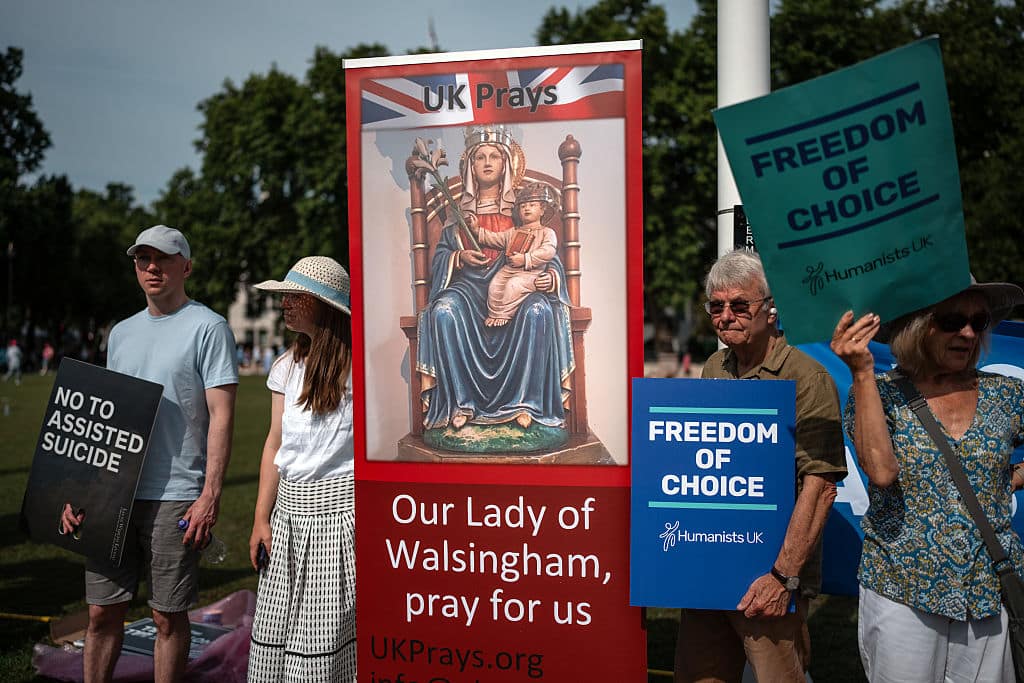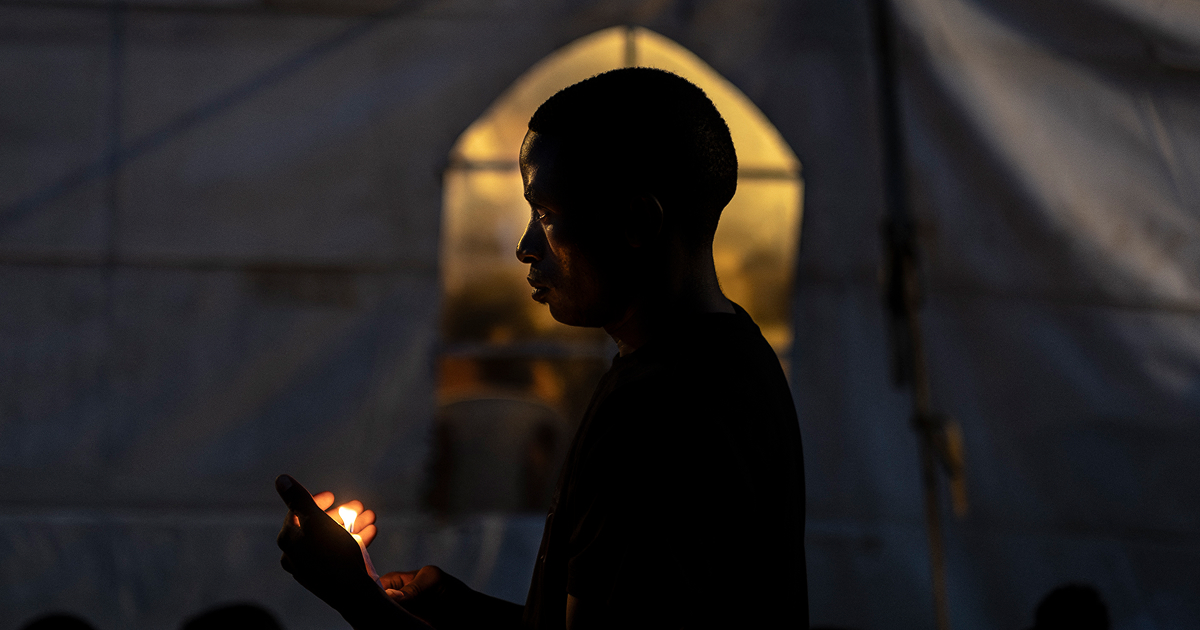The forthcoming closure of one of the world’s leading Catholic bioethics agencies means that the Church in Britain is losing one of its most major champions on such issues.
It was announced on 2 July that the Anscombe Bioethics Centre in Oxford is being closed by the Catholic Trust of England and Wales at the end of the month.
The centre was established n 1977 and is the oldest bioethical research institution in the United Kingdom.
One person closely tied to the centre said the decision “puts into jeopardy ongoing projects and collaborations”.
The former official, who asked not to be identified, told Crux: “The centre has been very active, particularly in the fight against assisted suicide. Not having the centre anymore means the Church loses an important source of advocacy that is rooted in scholarship but able to speak to the wider public and to policymakers.”
Pope Leo XIV, shortly after his election, told diplomats on 16 May that no one is exempted from “striving to ensure respect for the dignity of every person, especially the most frail and vulnerable, from the unborn to the elderly, from the sick to the unemployed, citizens and immigrants alike”.
He has also noted that changes in technology – especially the rise of Artificial Intelligence – is a major concern of the Catholic Church.
Australian Archbishop Anthony Fisher, Archbishop of Sydney, has called the centre “not just the premier Christian bioethics institute in Britain, but one of the finest in the world, Christian or secular”.
The centre’s name honours Elizabeth Anscombe (1919–2001), the great Catholic philosopher who taught in Oxford and Cambridge, debated with C.S. Lewis, and studied with Wittgenstein. She was well-known for her defence of human life and for sparking the contemporary revival of virtue ethics.
“It is the earnest hope of staff at the centre that some means may be found to continue to make available the resources of that the centre has generated," David Albert Jones, the centre’s director, said in a statement. "And also to continue the vital work of bioethical research and education that fully respects the dignity of the human person."
Jones notes that the centre – along with the donations it has received from trusts, organisations, communities and individual donors – has “helped educate and support generations of conscientious healthcare professionals, clerics and lay people” for almost 50 years.
He says the support “has also helped prevent repeated attempts to legalise euthanasia or assisted suicide in Britain and Ireland from 1993 to the present”.
Jones notes that even when the centre has not managed to prevent “an unethical law” from being passed – for example the Human Fertilisation and Embryology Act 1990 or its amendment in 2008 – the centre “has maintained a witness the dignity of human life from conception to natural death”.
Much of the focus of the centre’s work over the past year has been the attempt in Scotland and in England and Wales to decriminalise “encouraging and assisting suicide” in the case of people deemed to have a “terminal” illness.
“Our work has been cited in Parliament and we have helped inform many people who are concerned about this issue,” Jones says.
“While the centre will no longer be in a position to provide new resources, we urge people to make use of the resources we have already made available and to engage with the Scottish Parliament and with the House of Lords as these bodies continue to debate dangerous and ill-thought-out legislation.”
Photo: A group of people that includes those protesting against, and those showing support for, assisted suicide ahead of the Third Reading of the Terminally Ill Adults (End of Life) Bill, London, England, 20 June 2025. (Photo by Carl Court/Getty Images.)
The forthcoming closure of one of the world’s leading Catholic bioethics agencies means that the Church in Britain is losing one of its most major champions on such issues.
It was announced on 2 July that the Anscombe Bioethics Centre in Oxford is being closed by the Catholic Trust of England and Wales at the end of the month.
The centre was established n 1977 and is the oldest bioethical research institution in the United Kingdom.
One person closely tied to the centre said the decision “puts into jeopardy ongoing projects and collaborations”.
The former official, who asked not to be identified, told <em>Crux: </em>“The centre has been very active, particularly in the fight against assisted suicide. Not having the centre anymore means the Church loses an important source of advocacy that is rooted in scholarship but able to speak to the wider public and to policymakers.”
Pope Leo XIV, shortly after his election, told diplomats on 16 May that no one is exempted from “striving to ensure respect for the dignity of every person, especially the most frail and vulnerable, from the unborn to the elderly, from the sick to the unemployed, citizens and immigrants alike”.
He has also noted that changes in technology – especially the rise of Artificial Intelligence – is a major concern of the Catholic Church.
Australian Archbishop Anthony Fisher, Archbishop of Sydney, has called the centre “not just the premier Christian bioethics institute in Britain, but one of the finest in the world, Christian or secular”.
The centre’s name honours Elizabeth Anscombe (1919–2001), the great Catholic philosopher who taught in Oxford and Cambridge, debated with C.S. Lewis, and studied with Wittgenstein. She was well-known for her defence of human life and for sparking the contemporary revival of virtue ethics.
“It is the earnest hope of staff at the centre that some means may be found to continue to make available the resources of that the centre has generated," David Albert Jones, the centre’s director, said in a statement. "And also to continue the vital work of bioethical research and education that fully respects the dignity of the human person."
Jones notes that the centre – along with the donations it has received from trusts, organisations, communities and individual donors – has “helped educate and support generations of conscientious healthcare professionals, clerics and lay people” for almost 50 years.
He says the support “has also helped prevent repeated attempts to legalise euthanasia or assisted suicide in Britain and Ireland from 1993 to the present”.
Jones notes that even when the centre has not managed to prevent “an unethical law” from being passed – for example the Human Fertilisation and Embryology Act 1990 or its amendment in 2008 – the centre “has maintained a witness the dignity of human life from conception to natural death”.
Much of the focus of the centre’s work over the past year has been the attempt in Scotland and in England and Wales to decriminalise “encouraging and assisting suicide” in the case of people deemed to have a “terminal” illness.
“Our work has been cited in Parliament and we have helped inform many people who are concerned about this issue,” Jones says.
“While the centre will no longer be in a position to provide new resources, we urge people to make use of the resources we have already made available and to engage with the Scottish Parliament and with the House of Lords as these bodies continue to debate dangerous and ill-thought-out legislation.”
<em>Photo: A group of people that includes those protesting against, and those showing support for, assisted suicide ahead of the Third Reading of the Terminally Ill Adults (End of Life) Bill, London, England, 20 June 2025. (Photo by Carl Court/Getty Images.)</em>


















